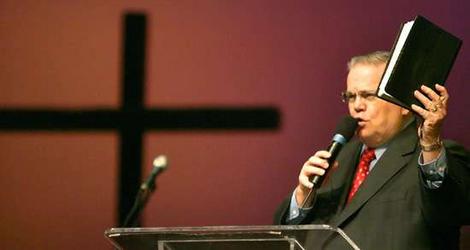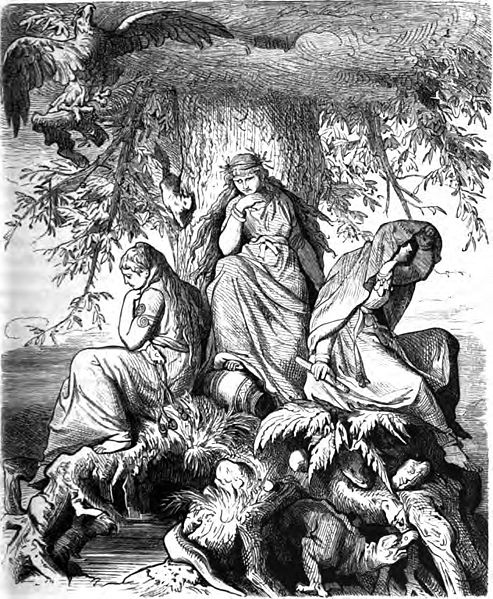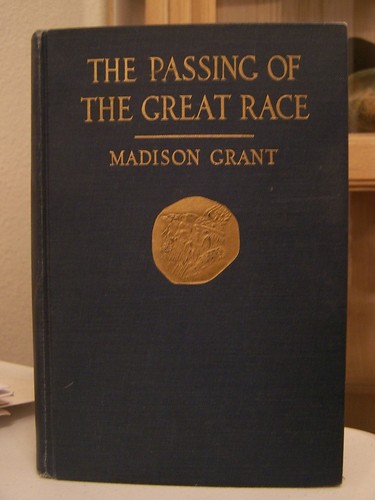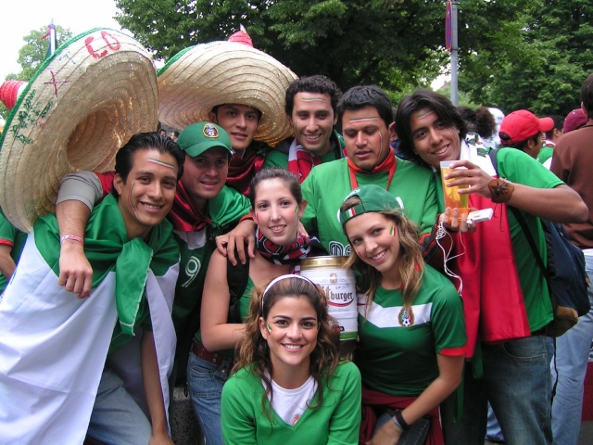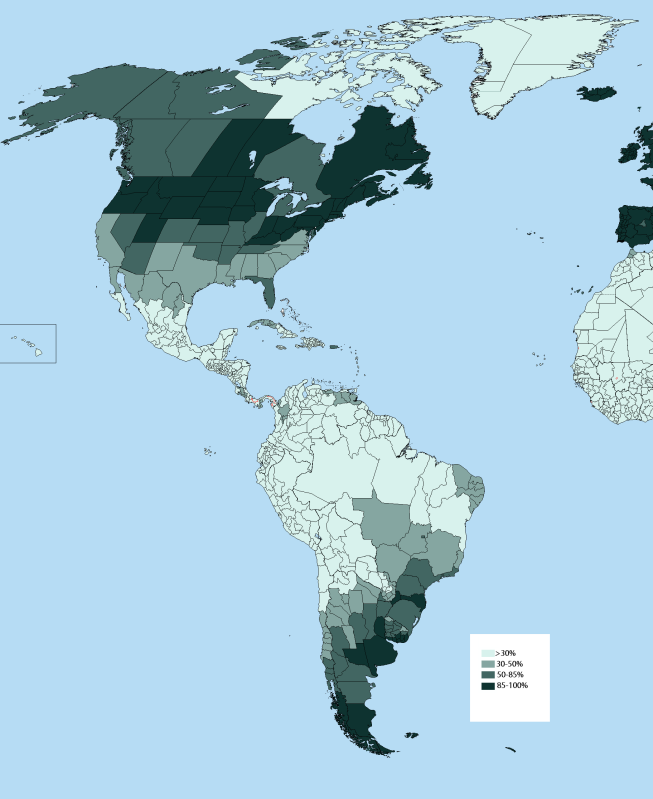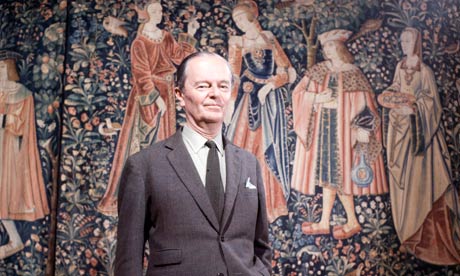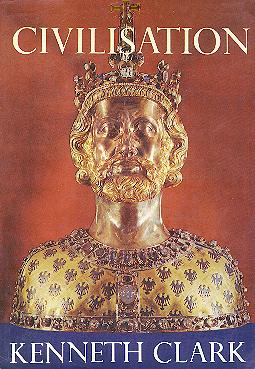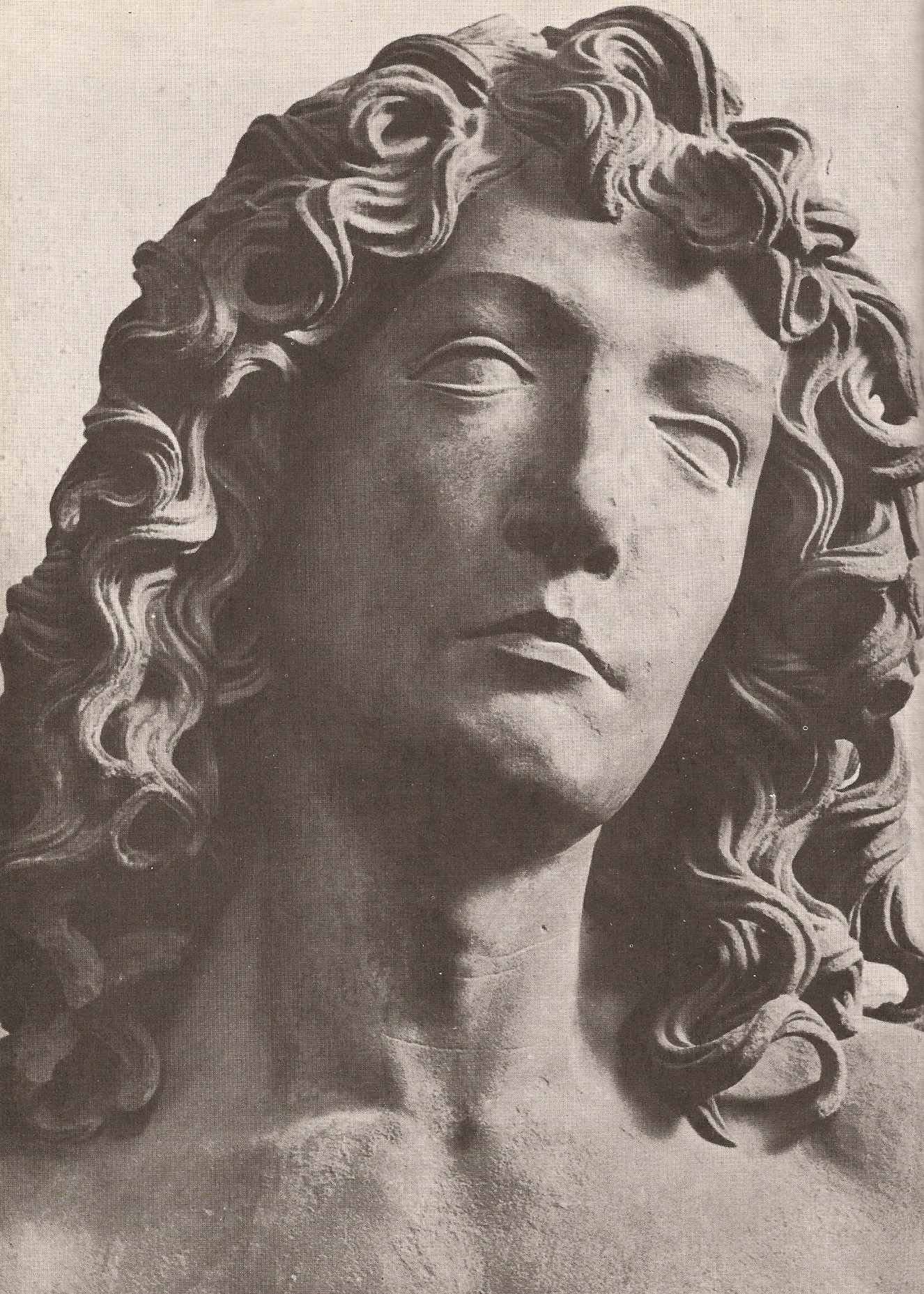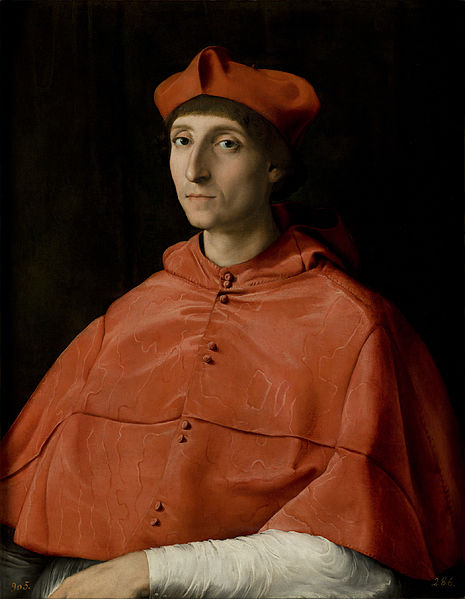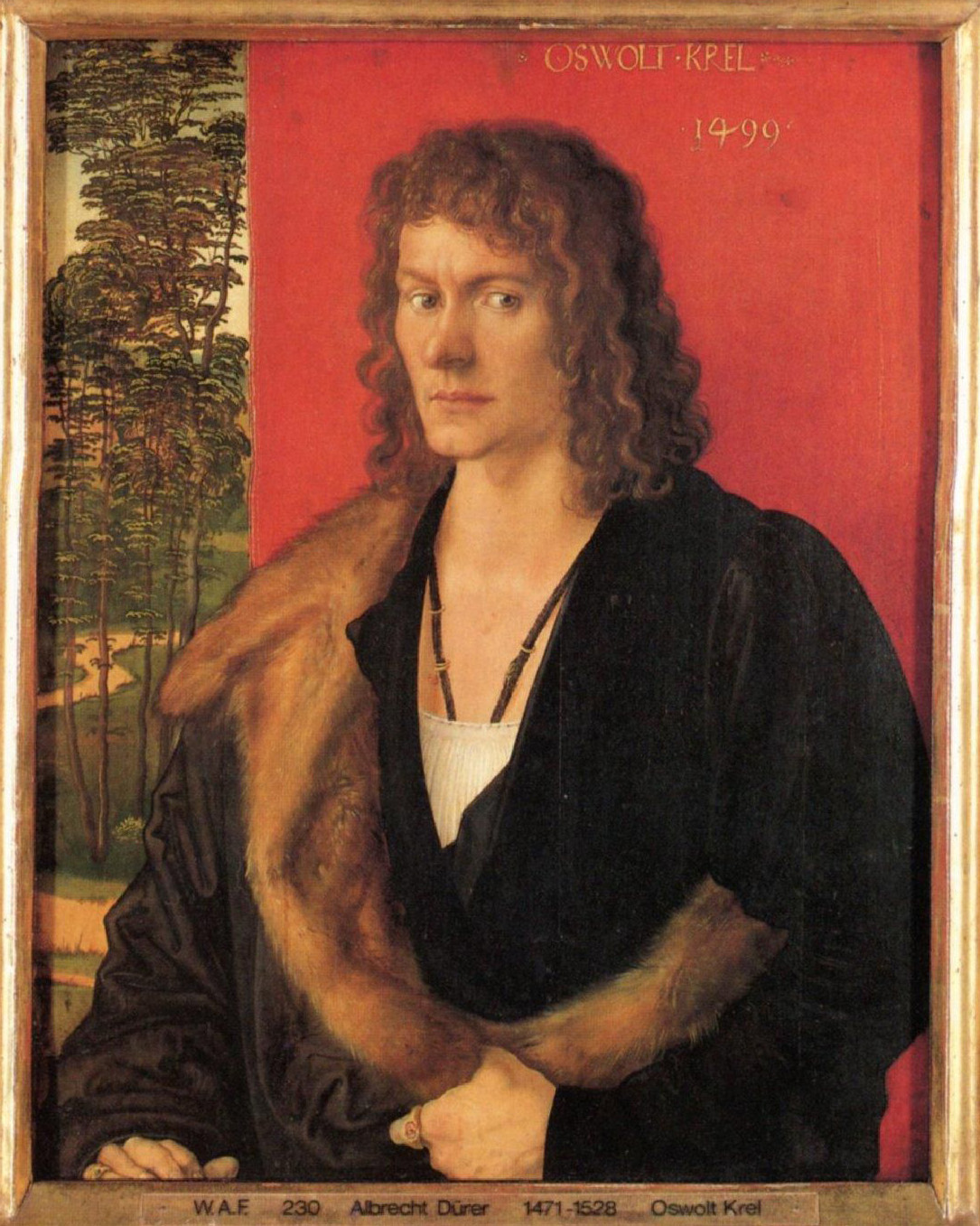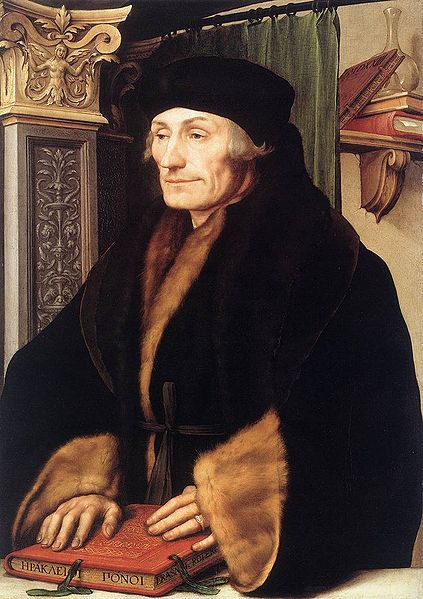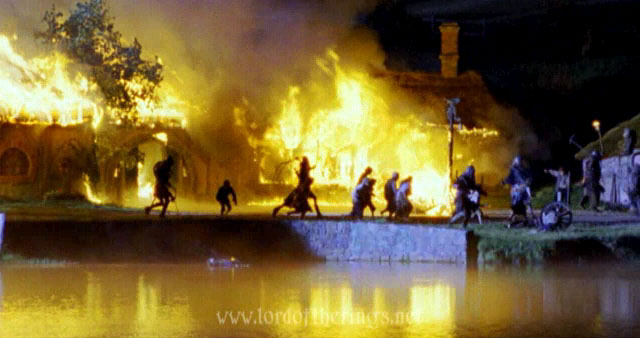Below, translated excerpts from the first pages of Deschner’s 10-volume Kriminalgeschichte des Christentums, published in German in 1986.
______ 卐 ______
Introduction
To begin, I will say what the reader should not expect. As in all of my criticisms of Christianity, here there will be missing many of the things that also belong to history, but not to the criminal history of Christianity that the title indicates. That, which also belongs to history, may be found in millions of works that fill up the libraries, archives, bookstores, academies and the lofts of the parish houses. He who wants to read those materials can do so long as he has life, patience and faith.
This religion has thousands, hundreds of thousands of apologists and defenders; it has books in which many boast of ‘the luminous march of the Church through the ages’ (Andersen), and that the Church is ‘one’ and ‘the living body of Christ’ and ‘holy’ because ‘its essence is holiness; sanctification its end’ (the Benedictine von Rudloff). It is understood, on all this, that the unfortunate side details (religious wars, persecutions, fighting, famine) happened in the designs of God; often inscrutable, always just, full of wisdom and salvific power. Given the overwhelming predominance of the silly, misleading and deceitful glorifying, was it not necessary to show the opposite view insofar as it is much better proven? At any event, those who always want to see the bright side are shielded from the ugly side, which is often the truest.
The distinction between the Church and Christianity is relatively recent. As is known, there is a glaring contradiction between the lives of the Christians and the beliefs they profess: a contradiction which has always been downplayed by pointing to the eternal opposition between the ideal and the real. Nobody dares to condemn Christianity because it has not fulfilled all its ideals, or has fulfilled half of them, or not at all. But such an interpretation ‘equals to carry too far the notion of the human and even the all too human, so that when century after century and millennium after millennium someone does the opposite of what he preaches then becomes, per share and effect of all his history, epitome and absolute culmination of worldwide and historical criminality’ as I said during a conference in 1969 which earned me a visit to the courthouse.
Because that is really the question. Not that they have failed the ideals in part or by degrees, no: it is that those ideals have been literally trampled, without which the perpetrators lay down, for a moment, their claims of self-proclaimed champions of such ideals, nor stop their self-declaration of being the highest moral authorities in the world.
Western Christianity, in any case, ‘was essentially created by the Catholic Church’; ‘the Church, organised from the papal hierocracy down to the smallest detail, was the main institution of the medieval order’ (Toynbee).
Part of our question are the wars started or commanded by the Church, the extermination of entire nations: the Vandals, the Goths, and the relentless slaughter of East Slav peoples—all of them, according to the chronicles of the Carolingian and the Ottos, criminals and confused peoples in the darkness of idolatry that was necessary to convert by any means not excepting betrayal, deceit and fury. Of the fourteen legislated capital crimes by Charlemagne after subduing the Saxons by blood and fire, ten offenses relate exclusively to the religious camp. Under the old Polish criminal law, those guilty of eating meat during the Easter fast were punished by pulling their teeth out.
We will also discuss ecclesiastical punishments for violations of civil rights. The ecclesiastical courts were increasingly hated. There are issues that we will discuss extensively: sacrificial practices (the stolen goods from the Church to be repaid fourfold, and according to Germanic law up to twenty times); ecclesiastical and monastic prisons, especially of the ergastulum type (the coffins were also called ergastula), where they were thrown both ‘sinners’ as the rebels and madmen, and usually installed in basements without windows or doors, but well equipped with shackles of all kinds, racks, handcuffs and chains. We will document the exile punishment and the application of it to the whole family in case of the murder of a cardinal; which extended to the male descendants up to the third generation. Also very fashionable were torture and corporal punishment, especially in the East where it became furiously popular to mutilate limbs, pull out eyes and cut off noses and ears.
It is quite plausible that not all authorities indulged themselves in such excesses, and certainly not everyone would be as insane as the Abbot Transamund, who tore off the eyes of the monks of the Tremiti Convent, or cut their tongues (and, despite this, enjoyed the protection of Pope Gregory VII, who also enjoyed great notoriety). Without a doubt, the churches, particularly the Roman Church, have created significant cultural values, especially buildings, which usually obeyed no altruistic reasons (representing power), and also in the domain of painting, responding to ideological reasons (the eternal illustrations of biblical scenes and legends of saints). But aside from such opted love of culture that contrasts sharply with paleo-Christianity—that with eschatological indifference contemplated the ‘things of this world’, as they believed in the imminent end of all (a fundamental error in which Jesus himself fell)—, it should be noted that most of the cultural contributions of the Church were made possible by ruthlessly exploiting of the masses, the enslaved and the impoverished, century after century. And against this promotion of culture we find further cultural repression, cultural intoxication and destruction of cultural property.
The magnificent temples of worship of antiquity were destroyed almost everywhere: irreplaceable value buildings burned or demolished, especially in Rome itself, where the ruins of the temples served as quarries. In the 10th century they still engaged in breaking down statues, architraves, burning paintings, and the most beautiful sarcophagi served as bathtubs or feeders for pigs. But the most tremendous destruction, barely imaginable, was caused in the field of education. Gregory I, the Great, the only doctor Pope of the Church in addition to Leo I, according to tradition burned a large library that existed on the Palatine. The flourishing book trade of antiquity disappeared; the activity of the monasteries was purely receptive. Three hundred years after the death of Alcuin and Rabanus Maurus, the disciples were still studying with manuals written by them. Even St. Thomas Aquinas, the Church’s official philosopher, writes that ‘the desire for knowledge is a sin when it does not serve the knowledge of God’.
In universities, the Aristotelian hypertrophy aborted any possibility of independent research. Philosophy and literature were subject to the dictation of theology. History, as a science, was completely unknown. The experimentation and inductive research were condemned; experimental sciences were drowned by the Bible and dogma; scientists were thrown into the dungeons, or sent to the stake. In 1163, Pope Alexander III (remember in passing that at that time there were four anti-popes) forbade all clerics studying physics. In 1380 a decision of the French parliament forbade the study of chemistry, referring to a decree of Pope John XXII. And while in the Arab world (obedient to Muhammad’s slogan ‘The ink of scholars is more sacred than the blood of martyrs’) the sciences flourished, especially medicine, in the Catholic world the bases of scientific knowledge remained unchanged for more than a millennium, well into the 16th century. The sick were supposed to seek comfort in prayer instead of medical attention. The Church forbade the dissection of corpses, and sometimes even rejected the use of natural medicines for considering it unlawful intervention with the divine. In the Middle Ages, not even the abbeys had doctors, not even the largest. In 1564 the Inquisition condemned to death the physician Andreas Vesalius, the founder of modern anatomy, for opening a corpse and for saying that man is not short of a rib that was created for Eve.
Consistent with the guidance of teaching, we find another institution, ecclesiastical censure, very often (at least since the time of St. Paul in Ephesus) dedicated to the burning of the books of pagans, Jews or Saracens, and the destruction (or prohibition) of rival Christian literature, from the books of the Arians and Nestorians until those of Luther. But let us not forget that Protestants sometimes also introduced censorship, even for funeral sermons and also for non-theological works, provided they touched on ecclesiastical matters or religious customs.
The above is a selection of the main issues that I refer to in my history of the crimes. And yet, it is only a tiny segment of the overall history.
History!
Like any other historian, I only contemplate a history of the countless possible histories, a particular one, worse or better defined, and even this biased aspect cannot be considered the whole ‘complex of action’: an absurd idea, given the volume of existing data; theoretically conceivable, but practically impossible and not even desirable. The author who intends to write a criminal history of Christianity is constrained to mention only the negative side of that religion which weight has exceeded ultimately that of the perceived or real positives. Those who prefer to read about the other aspects ought to read other books: The Joyful Faith, The Gospel as Inspiration, Is it True that Catholics are No Better Than the Others?, Why I Love My Church?, The Mystical Body of Christ, Beauties of the Catholic Church, Under the Cloak of the Catholic Church, God Exists (I Have Known Him), The Way of Joy Toward God, The Good Death of a Catholic, With the Rosary to Heaven, SOS from the Purgatory, The Heroism of Christian Marriage.
The pro-Christian literature! More numerous than the sands of the sea: against 10,000 titles just one of the style of this Criminal History of Christianity, not to mention the millions of issues if we add the countless religious periodicals.
It turns out that truly there are among Christians men of good will, as in all religions and in every game, which should not be taken as data in favour of those religions and parties, because if that were allowed how many crooks would testify against such belief? And good Christians are the most dangerous, because they tend to get confused with Christianity, or to borrow the words of Lichtenberg, ‘unquestionably there are many righteous Christians, only that it is no less true that in corpore their works as such have never have helped much’.
What is the basis of my work? As with most historical studies, it is based on sources, tradition, contemporary historiography; especially texts. But when I expose my subjectivity bluntly, my ‘point of view’ and my ‘positioning’, I think I show my respect to the reader better than the mendacious scribes who want to link their belief in miracles and prophecies; in transubstantiations and resurrections from the dead; in heavens, hells and other wonders with the pretence of objectivity, accuracy and scientific rigor. Could it not be that, with my confessed bias, I am less biased than them? Could it be that my experience, my training, did not authorise me to form a more independent opinion about Christianity? At the end of the day I left Christianity, despite having been formed in a deeply religious household, as soon as it ceased to seem real.
Let’s face it: we are all ‘partial’, and he who pretends denying it is lying. It is not our bias what matters, but confessing it, without the pretence of impossible ‘objectivities’. We are all biased. This is particularly true in the case of historians who are more bent on denying it, because they are the ones who lie the most—and then they throw to one another the dogs of Christianity. How ridiculous, when we read that Catholics accused the Protestants of ‘bias’; or the Protestants accusing the Catholics, when thousands of theologians of various confessions throw over each other so common reproach; for example, when the Jesuit Bacht wants to see in the Protestant Friedrich Loofs ‘an excess of zeal against monastic status as such’, for which ‘his views are too one-sided’. And how would not the Jesuit Bacht opine with partiality when he refers to a reformed; he, who belongs to an order whose members are required to believe that white is black and black white, if mandated by the Church? Like Bacht, unquestioning obedience is imposed upon all Catholic theologians in the habit through baptism, dogma, the chair, the ecclesiastical license to print and many other obligations and restrictions. And so they live year after year, enjoying a steady income in exchange for advocating a particular view, a particular doctrine, a particular interpretation of history strongly impregnated with theology… not so much to deceive themselves but to continue cultivating the deception of others. For example, by accusing of bias the opponents of their confession and pretending to believe that Catholics are safe from such defect; as if it didn’t exist, for two thousand years, another bias sneakier than the Catholic.
Historiography is no more than the projection into the past of the interests of the present. The conservative historian who compared his job to that of the priest (for heaven’s sake!) and issued for himself reports of maximum impartiality and objectivity, claimed that he ‘erased his subjectivity’! This unshakable faith for objectivism, called ‘ocularism’ by Count Paul York Wartenburg and lampooned as a proposal for a ‘eunuch objectivity’ by Droysen (‘only the unconscious can be objective’), is illusory. Because there is no objective truth in historiography, nor history as it happened. ‘There can only be interpretations of history, and none is definitive’ (Popper). All historiography is written against the background of our personal vision of the world. It is true that many scholars lack such a worldview and thus are often considered, if not markedly progressive, at least notably impartial, honest and truthful. Those are the champions of ‘pure science’, the representatives of an alleged stance of neutrality or indifference as to value statements. They reject any reference to a particular point of view, any subjectivity, as if they were unscientific sins or blasphemies against the postulate of the true objectivity they advocate; against that sine ira et studio [without anger and affection] which they have as sacrosanct and that, as Heinrich von Treitschke ironizes, ‘nobody respects, let alone the speaker himself’.
The fiction of the concealment of the ideological premises of the historical presentation can serve to conceal many things: an ethical relativism and a cowardly escapism fleeing categorical decisions on principles—which still is a decision: irresponsibility on behalf of scientific responsibility! For a science that does not make assessments, whether they like it or not, is an ally of the status quo: it supports the dominating and hurts the dominated. Its objectivity is only apparent, and in practice it means nothing but love to one’s own tranquillity, security and attachment to a career. Our life does not run value-free, but full of it; and scientists, insofar as they start from life, if they claim they are value-free incur in hypocrisy. I have had in my hands works of historians who were dedicated to the wife who had died in the bombings, or perhaps dedicated to two or three fallen sons on the fronts; and yet, sometimes, these people want to keep their writing as ‘pure science’, as if nothing had happened.
That’s their problem. I think otherwise. Even if it existed, and I say it does not, a totally apolitical historical research, oblivious to all kinds of judgments, such an investigation would serve no purpose but to undermine ethics and make way for inhumanity. Moreover, it would not be true ‘research’ because it would not be dedicated to revealing the relationships between the factors; as much as it would be mere preparatory work, the mere accumulation of materials, as noted by Friedrich Meinecke.
Now, to what extent does the reality of history coincides with my statement? I prefer life on principle to science, especially when it starts to become apparent as a threat to life in the broadest sense. It is often objected that ‘science’ is not to blame, but only some of the scientists (the problem is that there are many, at worst almost all): quite a similar argument that says that we should not take Christianity to task for the sins of Christendom. All this does not mean that I am a supporter of pure subjectivism, which does not exist. A limited capacity of conviction would have my thesis of the criminal character of Christianity if, to prove it, I confined myself to only some examples. But, being a multi-volume work, no one will say that these are isolated or inconclusive examples. Because I write ‘out of hostility’ the story of those I describe has made me their enemy. And I would not consider myself refuted by having omitted what was also true, but only when someone proves that something I have written is false.
There are even those who believe that it is very wrong to criticise, especially when they are criticised, although the latter they would never confess. Quite the contrary, they always claim they have nothing against criticism: that all critiques are welcome but, yes, provided they are positive critiques, constructive; not negative or deleterious. With swollen anger they set those high standards, precisely against the ‘mania of judging’ (Aitmeyer), and display their scandal with ‘scientific’ trims when an author dares to ‘value’; when ‘the historian, given his inability as a moralist, assumes the role of prosecutor’. Is it not grotesque that the sworn representatives of an ancient mystery cult, those who believe in trinities, angels, demons, hell, virgin births, celestial assumptions of a real body, conversion of water into wine and wine into blood, want to impress us with their ‘science’? And could it not be the height of grotesqueness that such people continue to receive the honours of the scientific world itself?
We are invited to take care on behalf of the ‘zeitgeist’ so that we understand and forgive. But precisely Goethe satirised it in his Faust: ‘What you call the spirit of the times, is ultimately the spirit of the masters’. If we are not worth the testimony of the poet for being notoriously anti-Christian and not less anticlerical, let us go to St. Augustine: ‘Times are hard, miserable times, people say. Let us live well, and times are good. Because we ourselves are the times that run; so that how we are, so will our time be’. In his other sermons, Augustine reiterated this idea that there is no reason to accuse the times or the ‘zeitgeist’, but the very humans that (as the historians of today) blame everything on the times: those miserable, difficult and murky times. Because ‘time does not offend anyone. The offended are men, and other men are the ones who inflict the offenses. Oh, pain! It offends men who are robbed, oppressed, and by whom? Not by lions, snakes or scorpions but by men. And so men live the offenses on pain, but will not themselves do the same, if they can, and as much as they have censored it?’ Augustine knew what he meant, as he himself fits perfectly in the last sentence of the quotation (see the last chapter of this volume). As this, ultimately, cannot be denied by the apologists, they object that sometimes—i.e., every time it was necessary, whatever the historical period under consideration—the agents ‘were not true Christians’.
But look, when there were true Christians? Were they the bloodthirsty Merovingians, the Franks so fond of plundering expeditions, the despotic women of the Lateran period? Was Christian the great offensive of the Crusades? Was it the burning of witches and heretics? The Thirty Years War? The First World War, the Second or the war of Vietnam? If all those were not Christians, then who was it? In any case, the spirit of the times was not ever the same at each particular time. While Christians were spreading their gospels, their beliefs and dogmas; while they were transmitting their infection to always larger territories, there were not a few men, such as the first great debunkers of Christianity in the 2nd century, Celsus; and Porphyry in the third, who knew how to raise a comprehensive and overwhelming criticism, which we still feel justified. As Christianity was guilty of appalling outrages, Buddhism, which never had a Western-style organised church in India or central authority dedicated to homogenise the true faith, gave signs of a much higher tolerance. Non-priest believers contracted no exclusive commitment, nor were forced to recant other religions, or converting anyone by force. Their peaceful virtues can be seen, for example, in the history of Tibet, whose inhabitants, a warrior nation among the most feared of Asia, became one of the most peaceful under the influence of Buddhism. In every century there was a moral conscience, even among Christians, and not less among ‘heretics’. Why should we not apply to Christianity its own scale of biblical standards, or even occasionally patristic standards? Do not they themselves say that ‘by their fruits ye shall know them’?
For me, history (and what I said is but a drop in an ocean of injustices) cannot be cultivated sine ira et studio. It would be contrary to my sense of fairness, my compassion for men. He who has not as enemy many enemies, is the enemy of humanity. And is not anyone who pretends to contemplate history without anger or affection similar to the one who witness a large fire and sees how victims suffocate and does nothing to save them, limiting himself to take note of everything? The historian who clings to the criteria of ‘pure’ science is necessarily insincere. He wants either to deceive others or deceive himself. I would add: he is a criminal, because there can be no worse crime than indifference.
And if the sentence of St. John Chrysostom retains its validity today, ‘he who praises the sin is guiltier than he who commits it’, would then praising the crimes of history and glorifying the criminals be even worse than these crimes? Would not human affairs be better, and also the affairs of history, if historians (and schools) illuminated and educated the public based on ethical criteria, condemning the crimes of the sovereigns rather than the praising? But most historians prefer to spread the faeces of the past as if they had to serve as fertiliser for the future havens.
An example of it, to cite only one, is the daily glorification of Charlemagne (or Charles the Great). The worst looting expeditions and genocides of history come to be called expansions, consolidation, extension of the catchment areas, changes in the correlation of forces, restructuring, incorporation domains, Christianization, pacification of neighbouring tribes. When Charlemagne oppresses, exploits, and liquidates what is around him, that is ‘centralism’, ‘pacification of a great empire’. When there are others who rob and kill, those are ‘raids and invasions of enemies across the borders’ (Saracens, Normans, Slavs, Avars) according to Kampf. When Charlemagne, with bags full of holy relics, sets fire and kills on a large scale, thus becoming the noble smith of the great Frank empire, the Catholic Fleckenstein speaks of ‘political integration’. Some specialists use even safer, more peaceful and hypocritical expressions as Camill Wampach, professor of our University of Bonn: ‘The country invited immigration, and the neighbouring region of Franconia gave inhabitants to newly liberated lands’.
The law of the jungle, in a word: the one which has been dominating the history of mankind to date, always where a State intended it (or another refused to submit), and not only in the Christian world, naturally. Because, of course, we will not say here that Christianity is the sole culprit of all these miseries. Perhaps someday, once Christianity disappears, the world remains equally miserable. We do not know that. What we do know is that, with it, everything will necessarily remain the same. That’s why I have tried to highlight its culpability in all cases I have found it essential, trying to cover as many cases as possible but, yes: without exaggeration, without taking things out of proportion, as those could judge who either do not have idea about the history of Christianity, or have lived completely deceived about it.

